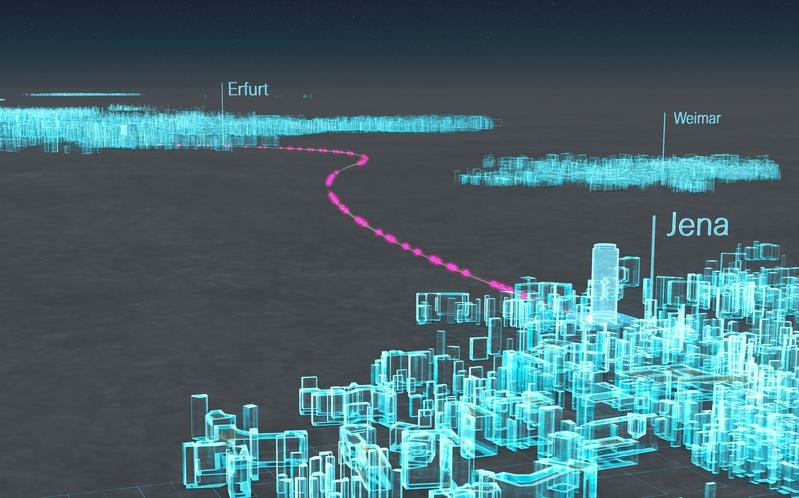
In a groundbreaking achievement, researchers have successfully transmitted quantum-encrypted messages across 254 kilometers of existing commercial fiber optic cables in Germany, connecting Frankfurt to Kehl via a relay point in Kirchfeld. This development marks a major step toward practical quantum networks using standard telecommunications infrastructure.
The system, developed by Toshiba researchers and collaborators, demonstrates that quantum communications can work without specialized expensive equipment like cryogenic coolers that were previously thought necessary. This breakthrough could accelerate the adoption of quantum networks by making them more accessible and cost-effective for telecom operators.
"This work opens the door to practical quantum networks without needing exotic hardware," explains Dr. Mirko Pittaluga, who participated in the research at Toshiba Europe Limited.
The quantum encryption system relies on photons to transmit secret keys between locations. Any attempt to intercept these keys would disturb the quantum properties of the photons, immediately revealing the presence of an eavesdropper. This makes quantum networks theoretically unhackable using current technology.
Rather than using costly superconductive detectors, the system employs more affordable semiconductor-based avalanche photodiodes. While these detectors are less efficient, the researchers overcame their limitations by implementing an innovative dual-detector setup and reference laser system to filter out noise from temperature changes and vibrations.
The system currently operates at a modest speed of 110 bits per second for encryption key distribution. However, researchers believe speeds could increase significantly by scaling up the encoding rate from 500 MHz to several GHz using existing technology.
"A few hundred bits per second of secret key generation is not necessarily a limitation," notes Pittaluga. "In many practical scenarios, such as using quantum keys to periodically refresh classical encryption systems, this rate is actually quite sufficient."
This achievement represents a major milestone in making quantum communications practical and commercially viable. The global market for quantum key distribution is projected to reach approximately US $20 billion by 2035, according to Toshiba estimates.